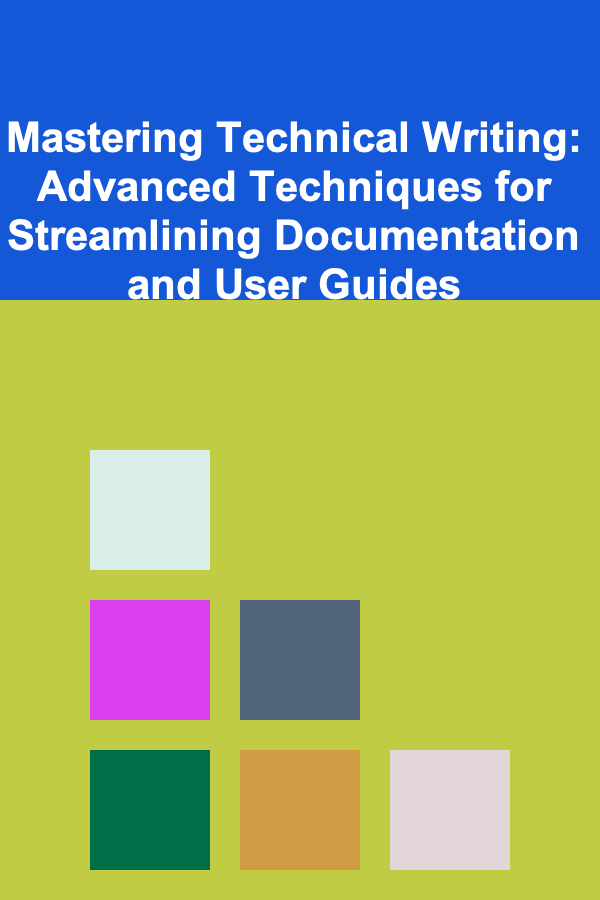
How To Master Interview Skills for Any Job
ebook include PDF & Audio bundle (Micro Guide)
$12.99$8.99
Limited Time Offer! Order within the next:

Interviews are an integral part of the job search process. They offer candidates an opportunity to showcase their skills, experience, and personal attributes, while also enabling employers to evaluate whether a candidate is the right fit for the position and the company. While technical skills and qualifications are important, how you perform during the interview can often make or break your chances of landing the job.
Mastering interview skills is essential to ensuring success. Whether you're applying for a role as a software engineer, a project manager, or even a creative position, there are core principles and strategies that can help you impress interviewers and secure the job of your dreams. In this article, we'll explore how to master interview skills for any job.
Preparation is Key: Research the Company
The foundation of any successful interview starts with thorough preparation. Before stepping into the interview room, you need to know as much as possible about the company, its mission, values, culture, and the role you're applying for. Doing so will not only allow you to answer questions effectively but will also demonstrate to the interviewer that you're genuinely interested in the position.
Research the Company's Background
Understand the company's history, its leadership, and its position in the industry. Look for recent news about the company, such as new product launches, partnerships, or any achievements that may have made headlines. This will give you valuable talking points and allow you to tailor your responses in alignment with the company's goals and culture.
Understand the Role
Examine the job description in detail. Understand the responsibilities, the key competencies required, and how your skills and experience match those requirements. The more you know about the role, the easier it will be to explain why you are the best fit for it.
Know Yourself: Prepare Your Story
In an interview, you're not just answering questions --- you're telling a story. To communicate effectively, you need to have a clear understanding of your own career path, the key experiences that have shaped you, and the skills that set you apart from other candidates.
Reflect on Your Career Journey
Think about your career trajectory, your achievements, and the challenges you've faced. Identify key moments where you demonstrated leadership, problem-solving abilities, or teamwork. These are the types of experiences you should be ready to share during your interview.
Craft Your Elevator Pitch
An elevator pitch is a concise, compelling summary of your background, skills, and motivations. It should highlight your most important qualifications and demonstrate why you are a great candidate for the role. Practicing your pitch can help you confidently introduce yourself and set a positive tone for the interview.
Master Common Interview Questions
Most job interviews will feature a set of common questions. While you can't predict every question, you can certainly prepare for many of the standard ones. Mastering how to answer these questions can give you a significant advantage.
Tell Me About Yourself
This is often the first question in an interview and can set the tone for the rest of the conversation. Avoid simply listing your qualifications or personal details. Instead, use your answer to tell a concise and engaging story about your professional journey. Highlight key experiences, skills, and why you're passionate about the job you're interviewing for.
Why Do You Want to Work Here?
This question tests your knowledge of the company and your interest in the role. Use your research to craft a response that aligns with the company's values and goals. Emphasize what excites you about the opportunity and how your skills and experience can help the company achieve its objectives.
What Are Your Strengths and Weaknesses?
This question is tricky because it requires self-awareness. When discussing your strengths, focus on specific skills that are relevant to the job and back them up with examples. When discussing weaknesses, be honest but strategic. Choose a weakness that isn't critical to the role and explain how you've been actively working to improve it.
Where Do You See Yourself in Five Years?
Employers ask this question to gauge your long-term goals and whether you plan to stay with the company. Your answer should reflect ambition but also be realistic. Avoid vague or overly ambitious responses. Instead, focus on how you envision growing within the company and contributing to its success over time.
Communicate Clearly and Effectively
Communication is a crucial skill in any job, and your ability to communicate effectively during the interview will be closely evaluated. Whether you're answering questions or asking your own, your communication style will play a significant role in how you're perceived.
Be Concise but Thorough
When answering questions, it's important to strike a balance between being concise and thorough. Avoid rambling, but don't leave your answers too brief either. A good rule of thumb is to structure your responses clearly and provide examples whenever possible.
Listen Actively
Listening is just as important as speaking during an interview. Active listening shows respect for the interviewer and ensures that you fully understand the questions being asked. Take a moment to gather your thoughts before responding to ensure your answer is thoughtful and relevant.
Non-Verbal Communication
Your body language plays a critical role in how you come across during the interview. Make eye contact, offer a firm handshake, and maintain an open posture. These non-verbal cues convey confidence and professionalism.
Prepare Questions to Ask the Interviewer
At the end of the interview, the interviewer will likely ask if you have any questions. This is your opportunity to demonstrate your interest in the company and the role. Asking insightful questions can also help you determine whether the job is the right fit for you.
Ask About the Team and Company Culture
Inquire about the team dynamics and company culture. This shows that you're thinking about how you'll fit into the organization and whether you'll be happy working there.
Ask About the Role's Challenges
Asking about the challenges of the role demonstrates that you are realistic and prepared for the work ahead. It also helps you gain a better understanding of what to expect if you are hired.
Inquire About Opportunities for Growth
This shows that you're thinking long-term and are interested in developing within the company. It also gives you a sense of the company's commitment to employee growth and development.
Practice, Practice, Practice
The key to mastering interview skills is practice. Rehearse your answers to common interview questions and ask a friend or family member to conduct mock interviews with you. The more you practice, the more comfortable and confident you'll be when it's time for the real thing.
Record Yourself
Consider recording yourself answering interview questions. This will give you the chance to evaluate your delivery, body language, and tone. You can also make adjustments based on what you observe.
Get Feedback
If possible, ask for feedback from someone who has experience in hiring or interviewing. Constructive feedback can help you fine-tune your approach and ensure that you're presenting yourself in the best light.
Prepare for Behavioral Interviews
Many companies use behavioral interviews to assess how candidates have handled situations in the past. These interviews often follow the STAR method, which stands for Situation, Task, Action, and Result.
Understand the STAR Method
- Situation: Describe the context of the situation you were in.
- Task: Explain the task you had to complete.
- Action: Discuss the action you took to address the task.
- Result: Share the outcome of your actions.
By preparing specific examples from your past experience, you'll be able to demonstrate how you've handled various situations and showcase your problem-solving abilities.
Prepare for Technical Interviews (if applicable)
For certain roles, especially in fields like software engineering or data science, you may be asked to participate in a technical interview. These interviews test your knowledge and problem-solving abilities in real-time.
Brush Up on Key Concepts
Review key concepts, algorithms, or tools that are relevant to the position you're applying for. Practice coding problems or take part in mock technical interviews to sharpen your skills.
Practice Under Pressure
Technical interviews often involve solving problems on the spot. Practice working under time constraints to simulate the pressure of a real interview.
The Final Touch: Mindset and Confidence
The final element of mastering interview skills is having the right mindset. Confidence is key to performing well during the interview. Without overconfidence, you should approach the interview with a positive attitude, a sense of calm, and the belief that you're a strong candidate for the role.
Stay Calm and Positive
Before the interview, take a few deep breaths to calm your nerves. Stay positive and focused on the opportunity, not on the potential challenges.
Handle Nerves with Ease
It's normal to feel nervous before an interview, but don't let anxiety take over. Visualize yourself succeeding in the interview and keep a positive, professional demeanor throughout the process.
Be Yourself
Finally, remember to be yourself. Authenticity is attractive to employers, and they want to hire someone who will be a good fit for their team and culture. Don't try to be someone you're not --- focus on showcasing your true strengths and skills.
Conclusion
Mastering interview skills takes time and practice, but the effort is well worth it. By preparing thoroughly, practicing your responses, and maintaining a confident and positive attitude, you'll be able to impress interviewers and land the job you want. Remember, interviews are not just a chance for employers to assess you, but also an opportunity for you to evaluate whether the company and role are right for you. By mastering the art of the interview, you can take control of your career path and increase your chances of success.

How to Create an Effective Lease Agreement for Your Rental Property
Read More
How to Host a Potluck Party at Home Like a Pro
Read More
How to Store Extra Bedding and Towels Without Taking Up Room
Read More
How to Use the Pomodoro Technique to Boost Productivity
Read More
Mastering Technical Writing: Advanced Techniques for Streamlining Documentation and User Guides
Read More
How to Choose Sustainable Toys for Children
Read MoreOther Products

How to Create an Effective Lease Agreement for Your Rental Property
Read More
How to Host a Potluck Party at Home Like a Pro
Read More
How to Store Extra Bedding and Towels Without Taking Up Room
Read More
How to Use the Pomodoro Technique to Boost Productivity
Read More
Mastering Technical Writing: Advanced Techniques for Streamlining Documentation and User Guides
Read More